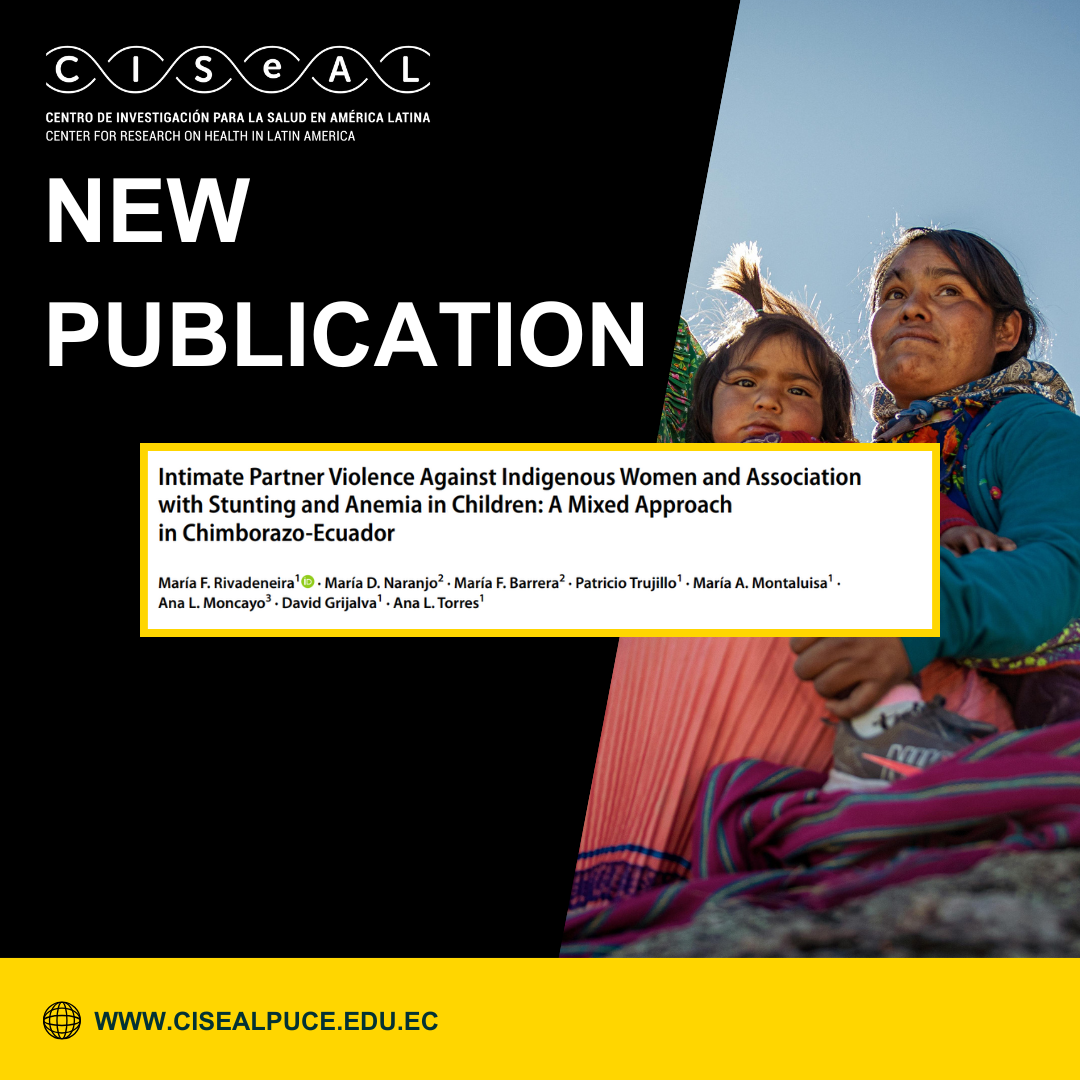
Dr. Ana Lucía Moncayo, principal investigator of CISeAL, participated in a study led by the Institute of Public Health of PUCE, which describes intimate partner violence against indigenous women and its association with stunting and anemia in children under five years of age in Chimborazo, Ecuador. Using a mixed-methods design, the researchers conducted a cross-sectional study involving 317 children and their mothers. Structured questionnaires were administered to collect information on partner abuse, socioeconomic characteristics, and alcohol consumption, complemented by anthropometric measurements and assessments of infant hemoglobin levels.
It was found that 31.5% of the women were victims of non-physical violence and 18% of physical violence. Moreover, the partner’s alcohol consumption at least twice a month was associated with a 4.2-fold higher likelihood of violence. The lack of basic services such as drinking water and sewerage significantly increased the prevalence of physical and non-physical violence in the households.
Although no statistically significant association was found between intimate partner violence and child stunting, children of mothers exposed to physical and non-physical violence had a 2.1-fold and 2.6-fold higher prevalence of anemia, respectively. Focus groups with 28 indigenous women showed that violence is related to factors such as age, religion, poverty, lack of education, and limited access to public services, affecting the emotional well-being of mothers and, therefore, the health and nutrition of their children. This study highlights that in indigenous and rural populations in Ecuador, intimate partner violence has significant repercussions on child health, particularly anemia, and underscores the need for comprehensive social protection and intercultural care policies aimed at preventing violence and mitigating its effects on future generations.
We invite you to read the full article at: https://link.springer.com/article/10.1007/s10995-025-04117-3



